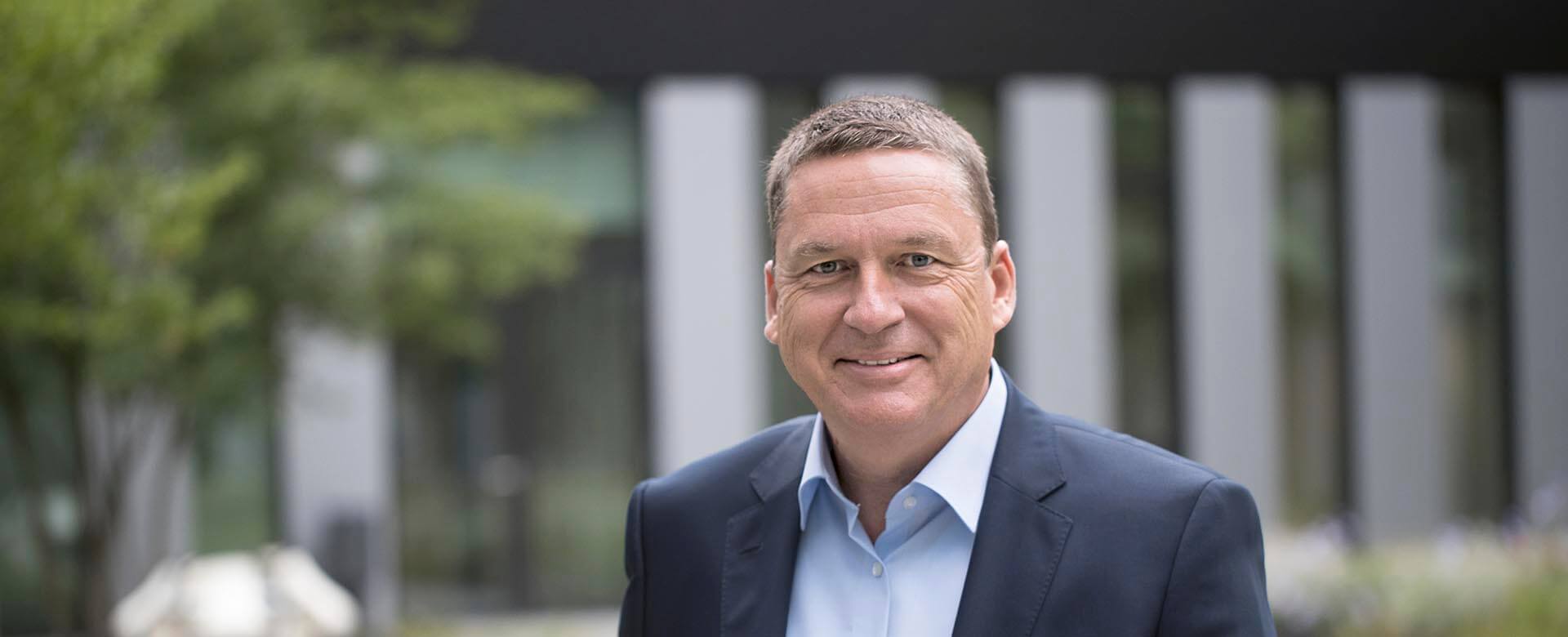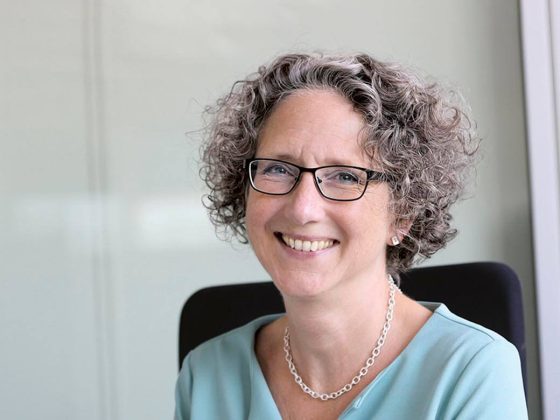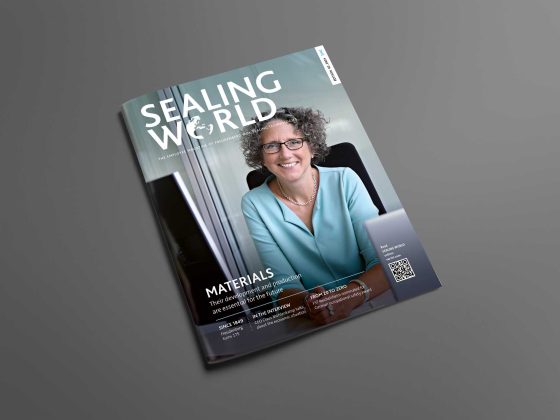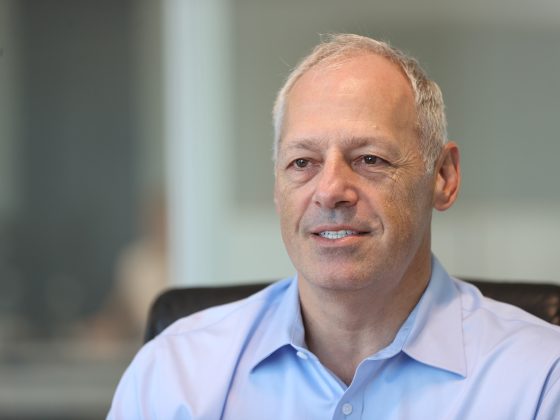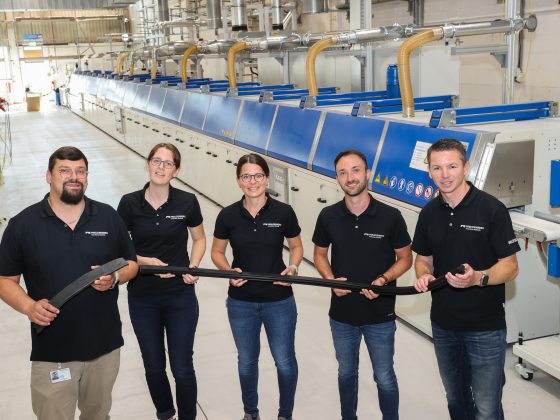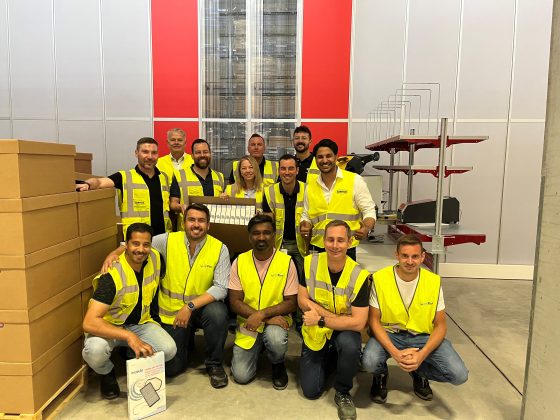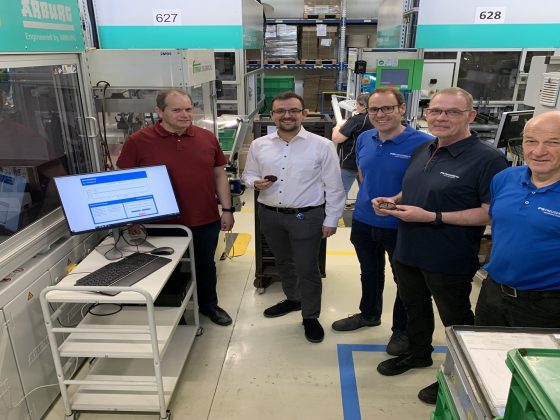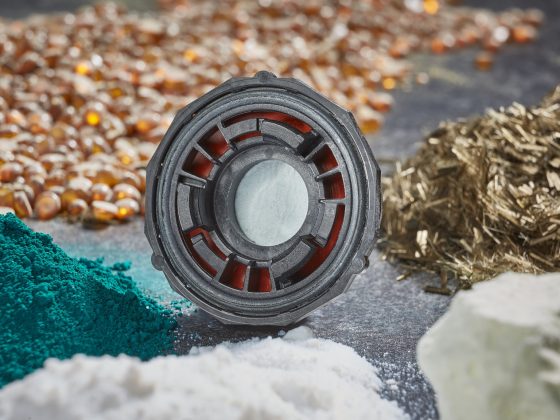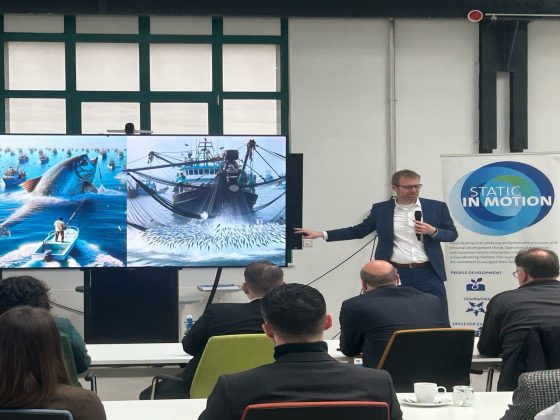In the interview, Claus Möhlenkamp, Chief Executive Officer of Freudenberg Sealing Technologies (FST), talks about the latest strategy period and looks ahead to the company’s development over the next few years.

How did FST perform in the strategy period that ended in 2023?
We have broadly achieved all the goals that we set. Revenue and profitability were even above our goal in 2023. We were not so successful with our working capital target: Due to the supply chain disruptions during the previous year, especially involving the material FKM, we stored large quantities of materials. Like many other companies, we bought whatever we could get from the market. Due to these purchases, we have high stock levels that we have to reduce. That’s the reason we are not as well positioned in working capital as we had planned. Aside from that, we have achieved our strategic goals on the whole despite the difficult conditions.
Why was FKM in such short supply?
FKM is used in batteries. Many different sectors snapped up the material for applications in the electric-mobility field. The market could not keep up with demand. Battery manufacturers are now using many basic materials that we need for the production of polymers. Today, these materials are gradually becoming available again. Since the subsidies for electric vehicles in Germany are running out, fewer battery-electric cars are being sold. The overall market can quiet down now and adapt to the new situation.
The OECD sees a rise in economic output of just 2.7 % for 2024. What growth are you expecting for FST?
(Smiles). Honestly speaking, the estimates of economists, business experts and institutions have missed the mark over the past few years. So I don’t rely on them anymore. The more exciting news is that the U.S. just reported an annualized 5.2 % rise in its real gross domestic product (GDP) in the third quarter, compared to 2.1 % in the second quarter. No one was expecting growth on this scale. Still, 2024 is likely to be a tough year for us. The shortage of the money supply is the most important factor, but this hasn’t really had an impact yet. Even if inflation declines further, interest rates are high, and credit is becoming more expensive. All of this is leading to a less promising economic outlook. Whether global economic output now rises 1 % or 2.87 % is immaterial to us. We have to pay more attention to specific markets. We have to keep an eye on China and the developments in its economy. After all, it is one of the world’s largest car markets. How is the U.S. doing? Is it heading into a recession? I expect demand to decline in North America this year and it to be stable in Europe. At the moment, China is the big question mark for us.
What is the reason for this?
The economic trend in China is hard for us to assess right now. The economy is certainly growing here and there, and the auto industry is actually doing better than it sometimes seems. But there are problems in the construction industry and the segments of general industry where we are active. Consider Sany, the Chinese manufacturer of construction equipment. It ranks second among the top 10 in the sector. The company is now in massive economic decline. Nothing is being built anymore. Investments in infrastructure have ground to a halt. Our sales in general industry in China have fallen 40 % since the start of 2023. Until this major pillar of the construction industry rights itself, the outlook for us will continue to be quite gloomy in China.
Can Southeast Asia compensate for this?
Southeast Asia is a new market. It will get there, but that will take time. We have to adjust to the fact that the situation will be more difficult in many global markets in the coming years.
What countermeasures are you considering?
It has always been a good idea for us to manage our costs in a disciplined way and maintain cost flexibility.
Does that mean we will be saving on travel and material costs once again?
Yes, that too. Covid taught us how to run our businesses remotely as well as in person. We won’t be traveling on business trips as much as before the pandemic. Of course, we will be dealing with customers face-to-face again, but not to the same extent as before 2020. We have found a good balance between virtual and in-person meetings. When face-to-face meetings are essential, we are traveling more purposefully. That promotes greater efficiency – with regard to costs and sustainability. We don’t need a dedicated cost reduction program – we just need to continue to do what we are doing. There is no reason whatsoever to increase budgets. We are also planning to reduce our selling, general and administrative expenses, the so-called SG&A costs. They include development, warehousing and logistics. In a benchmark study, we compared our company to our direct competitors and found that our administrative costs were about 4 percentage points higher than the competition. So we have to ask why that’s the case. It has something to do with structures, efficiency and many other aspects. That’s where we want to start. In years past, we initiated lean programs in manufacturing and made it competitive. Now we have to do the same in administration.
This is basically about efficiency?
Efficiency is the magic word, and not just in the SG&A area. Our processes have to improve. They have to be more digital and modern. Through the decades, we have continued to maintain many business practices because we could afford to keep them. We won’t be able to do that in the future. We have to get rid of outdated practices. We are not talking about a crisis situation. It is more a matter of supporting the transformation with a new, powerful product portfolio. This transformation will be with us for many years. The current automotive agenda based on the internal combustion engine will continue to change. We will have new products at that point, and we will have to be competitive – not just in production but in in all of our supporting functions as well.
What does that mean for the people of FST?
When employees in indirect functions of our organization will be leaving the company due to retirement or for other reasons, we need to examine whether this position is really essential and needs to be filled. With our processes in mind, we will need to analyze how we can offer employees good options and alternative assignments when their current job changes or no longer exists due to structural adjustments.
During his visit to Freudenberg in the fall of 2023, German Chancellor Olaf Scholz highlighted the importance of research and development. What are the investments that FST is planning?
We are very broadly positioned across various segments. The transformation is affecting some of them. Some segments are staying stable, and still others have very long-term development cycles. We continually invest about 4 % of our revenue in research and development. We are living in fast-paced times, with many transformations looming. The energy sector is being completely realigned, and the auto sector is undergoing a revolution. Artificial intelligence (AI) continues to expand its presence. When the market or our customers require us to do more, we rise to the occasion. For a major project such as cell caps development, we will additionally invest sums in the tens of millions – if an appropriate order is at stake. Fortunately, we have the financial flexibility to do this. One of the four incubators that we have been pushing hard is devoted to the cell caps project.
How do we finance costs of that magnitude?
We have built up considerable financial strength in recent years. That means we can finance such projects internally – from the profits of our business activities and from our cash flow. We have a lot of room to maneuver, which is essential. Our parent company gives us the latitude we need. But we are facing the challenge of replacing a core business that was built up over decades. Think about the Simmerrings® used in engines. If we now have to develop and produce completely different products, it has to be clear to us that we need to invest in the fundamentals, such as new, innovative production technologies. If the investment relates to long-term business, there’s absolutely nothing wrong with it. We can afford it. Since we are working with more than one incubator, a second or third major project like this could come our way.
The incubators you mentioned earlier emerged from Project Ovid. Their job is to get innovations in shape for the market. How far has FST come with this approach?
We initially focused on four incubators: They cover the battery cell caps that we talked about, plus thermal barriers, busbars and products for radar systems used with autonomous driving. We are furthest along with the thermal barriers in terms of how ready they are for implementation. Some of those products are already in series production. The business is doing well. Now it is critical to expand it further. Thus, the first incubator was successful and a Lead Center will soon take over. The cell caps are well on their way to maturity, too. While there is still no official series production order, we have already received large preproduction orders for 30,000 units. If the innovation does what we are promising, we will certainly get a regular production order. A decision on the order – valued at € 120 million initially – is imminent. As soon as that is settled, we will have to make the kind of extra investments that I mentioned earlier.
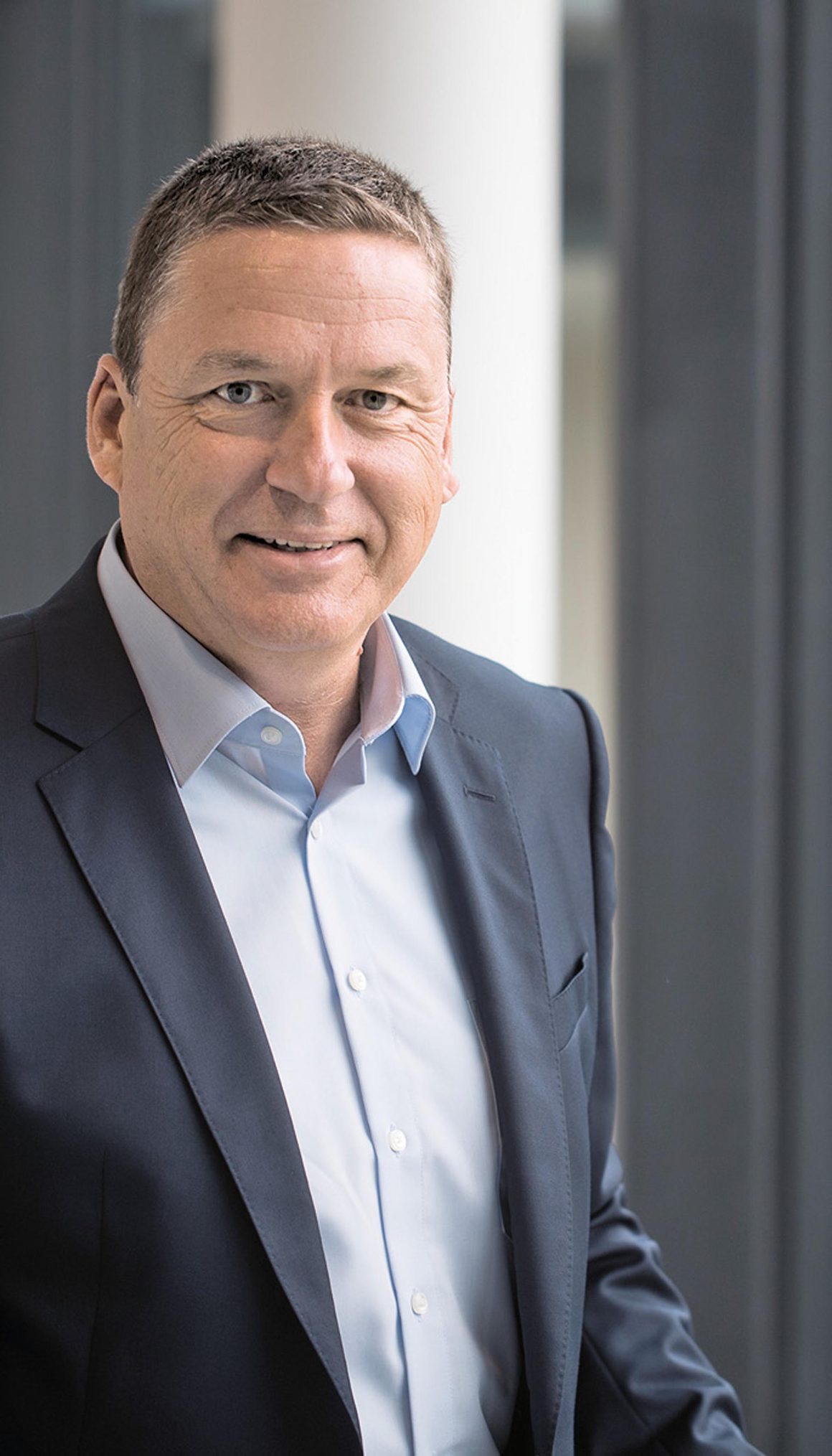
What do we have to monitor closely?
It is important for us to focus. We can’t do everything at once. The incubators represent a completely new approach for us. That means we have to deal with the market from a totally different angle, identify the success factors, and finally industrialize what we develop. Only a strong company can do that.
Where are we going to manufacture cell caps?
We will be making them in Pinerolo, Italy. We have already installed a prototype facility there. While it is still not fully automated, we are quite far along. Our team in Italy did a fantastic job. The customers were on-site in December. In the audit, we not only received outstanding feedback – we earned an excellent rating as well.
How is the busbar incubator doing?
We are not quite as far along with busbars. But we have the first prototypes for them, too. The business is on a somewhat smaller scale and will be spread across a broader base of customers. But everything is going as planned for these products as well.
And how far have we come with products for wave guide antennas, which are used in radar systems?
These products support autonomous driving. But the project will only be a done deal in four to five years, even though we have already delivered the first prototypes. We’re especially proud of the fact that the project doesn’t just involve prototype orders at this point. A customer has also signed an agreement to share development costs in the millions. The evidence could not be clearer that the interest in the products is real.
Initiatives to reduce CO2 have tremendously accelerated the growth of the market for hydrogen technology. What products has FST responded with?
We have been active in this segment at the component level for 20 years, in fuel cell stacks, for example. We are making seals for gas diffusion layers. We injection-mold gaskets on polyethylene naphthalate (PEN) film – which is transparent – as well as gaskets on frames, that is, ultra-thin plastic carriers for bipolar plates. There are also seals with larger formats for hydrolyzers. We have been very active and successful in the field for some time.
No new developments at the moment?
We have been dealing with a vision of what the whole hydrogen (H2) ecosystem will look like. That means the hydrogen value creation system, from production – using hydrolyzers – to the application, in a fuel cell stack, for example. But what happens in-between? Hydrogen has to be stored, transported, transformed, and compressed to 700 bar. We envision an entire range of process steps. As we analyzed them more closely, it became clear that there is a huge potential for us in the system.
Are we developing new products for it?
For us, the opportunities actually tend to involve classic components such as hydraulic seals for pumps, compressors, and distributors. We have calculated a potential of € 4.5 billion, with € 3 billion coming from the connection for the bipolar plate, which we do not, and won’t, make ourselves. But even if we subtract that portion, we are talking about an additional € 1.5 billion for our classic sealing business. That is a huge amount. We lost opportunities with the reorganization of our battery and fuel cell business into Freudenberg e-Power Systems, but there is still an unbelievable amount available at the component level.
What will China’s role be for FST in the future?
China is and will remain very important to us. Not just for our customers with international operations but especially for our local Chinese customers. This is why we are making changes to our organization on-site in China. We want to make it more independent from FST and our joint venture partner NOK. It is important for our Chinese units to focus more on local customers while building up their own development activities. From that standpoint, this will be an expansion of their competencies: China for China, local for local.
This means we are strengthening our presence in the Chinese market. At the same time, we are rebalancing our business activities in Asia by continuing to develop our presence in key locations, including some Southeast Asian nations. We are developing additional opportunities without losing sight of existing markets or withdrawing from them. Once again, we believe our job is to develop businesses locally instead of exporting staff, competencies and products as in the past.
Chief Financial Officer (CFO) Ludger Neuwinger-Heimes retires in April after nearly 40 years at Freudenberg. What was his impact on the company?
To start with, Ludger Neuwinger-Heimes has left his mark on many Freudenberg Business Groups. He did not start out at FST. He had earlier been at Freudenberg Home & Cleaning Solutions and other business groups. But he helped to shape FST as a high-level executive over a long period. He was and is an outstanding CFO. Unruffled, objective and fact-oriented, he ran the business with a steady hand and brought us through crises safely. Think back to 2009 when the financial crisis battered the world. We also made it through the pandemic together. Today we stand here with outstanding financial results. SAIL was one of his flagship initiatives. It was a huge, transformative project: When we started out in 2007, we were using eight different ERP systems. Today, we are working with just one global system. I can only say: Hats off, great job!
